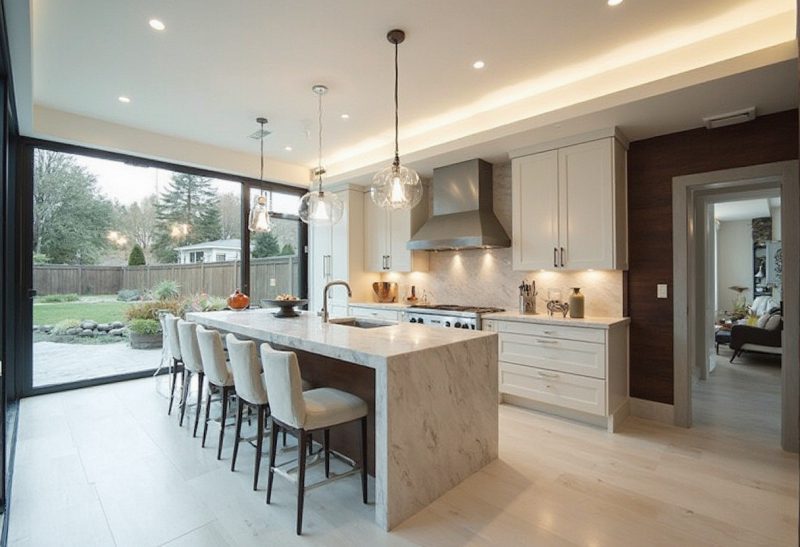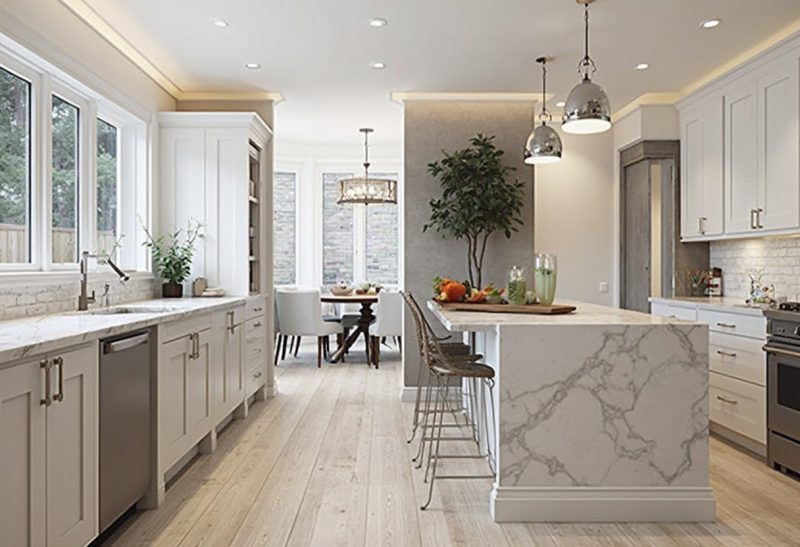1. Assessing Your Home’s Current Structure
Before starting your home addition, a thorough evaluation of your home’s existing structure is critical.
- Foundation: Your home’s foundation must be strong enough to support any new weight, particularly for a second-story addition. A structural engineer can assess and recommend reinforcements if needed.
- Roof: Planning to add a floor? Check if your roof can be removed or adjusted.
- Electrical, Plumbing, and HVAC: Adding new spaces like bathrooms or kitchens means your current systems may need upgrades.
By identifying any limitations early on, you can avoid costly surprises during construction.
2. Exploring Home Addition Types That Work for You
Choosing the right addition depends on your needs, space, and budget. Here are the most common types:
- Room Additions: Expand your home’s footprint with a new bedroom, office, or family room.
- Bump-Outs: Perfect for small expansions, like extending a kitchen or adding a reading nook.
- Second-Story Additions: In space-limited Toronto neighborhoods, building up allows you to double your square footage without losing yard space.
- Attic or Basement Conversions: Turn unfinished spaces into functional rooms like guest suites or home offices.
- Garage Conversions: Use underutilized garages for gyms, offices, or rental units.
Each option offers unique benefits, and a trusted contractor can help determine the best fit for your property.
3. Setting a Realistic Budget for Your Home Addition
In Toronto, home additions typically range between $100,000 and $300,000, depending on the scope. Key cost factors include:
- Size and type of the addition
- Materials (standard vs. luxury finishes)
- Labor costs
- Permits and inspections
Financing Your Project: If you’re concerned about upfront costs, explore financing options like home equity loans, construction loans, or personal lines of credit. Creating a detailed budget with a contingency fund will help you stay on track.
4. Navigating Toronto’s Zoning Laws and Permits
Understanding Toronto’s zoning bylaws is essential for legal compliance:
- Setbacks: Rules about how far your addition must be from property boundaries.
- Height Restrictions: Particularly relevant for second-story additions.
- Permits: You’ll need a building permit, electrical permit, and possibly plumbing permits.
Failing to secure these approvals can cause costly delays or penalties. Partnering with a contractor experienced in Toronto home renovations will streamline this process.
5. Choosing the Right Contractor for Home Additions in Toronto
A successful home addition starts with hiring the right professional:
- Research & Recommendations: Ask for referrals, check online reviews, and review portfolios of completed home renovation projects.
- Licensing and Insurance: Always verify that your contractor is licensed and insured for your peace of mind.
- Detailed Estimates: Request written quotes that clearly outline costs, materials, and timelines.
Choosing a contractor who specializes in home additions in Toronto ensures the work is completed efficiently, on budget, and to the highest standards.

6. Prioritizing Energy Efficiency and Sustainability
Modern home additions offer an opportunity to integrate energy-efficient solutions, saving you money and benefiting the environment:
- Windows & Insulation: Double-glazed windows and proper insulation ensure year-round comfort.
- HVAC Upgrades: Energy-efficient systems can handle your home’s expanded needs.
- Sustainable Materials: Opt for eco-friendly options like reclaimed wood or low-VOC paints.
Incorporating energy-efficient features not only reduces operating costs but can also increase your property’s resale value.
7. Preparing Your Home for Construction
To minimize disruptions during construction:
- Clear the Worksite: Remove furniture and belongings from the affected area.
- Protect Existing Spaces: Use barriers and dust covers to prevent damage.
- Plan for Temporary Living: For larger projects, consider staying elsewhere to avoid noise and dust.
Proper preparation ensures a smoother renovation process with minimal stress.
8. From Construction to Completion: What to Expect
The construction process typically follows these key stages:
- Foundation Work: Excavation and laying a solid foundation.
- Framing: Building the walls, floors, and roof structure.
- Utilities: Installing electrical, plumbing, and HVAC systems.
- Finishing: Drywall, insulation, painting, flooring, and trim work.
- Final Inspections: Ensuring compliance with Toronto building codes.
Your contractor will keep you updated at every stage, ensuring the project aligns with your expectations.
9. Post-Construction: Maintaining Your New Space
Once your addition is complete, regular maintenance will protect your investment:
- Inspect for signs of settling or wear.
- Maintain HVAC systems and check seals on windows and doors.
- Address any minor repairs promptly to avoid long-term issues.

10. Adding Value to Your Home and Lifestyle
A well-designed home addition not only adds usable space but also increases your property’s market value. Whether you’re adding a kitchen extension, second-story addition, or basement suite, these upgrades provide a significant return on investment while enhancing your day-to-day comfort.
Expanding your home in Toronto is an exciting and rewarding project when properly planned. By evaluating your current structure, working with experienced professionals, and integrating energy-efficient solutions, you can create a beautiful, functional space that meets your needs and adds lasting value.
For expert advice and free consultation on home renovations or custom home additions in Toronto, partnering with the right contractor like Maple Star Builders, ensures your vision becomes a reality—on time and within budget.


